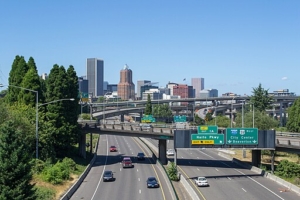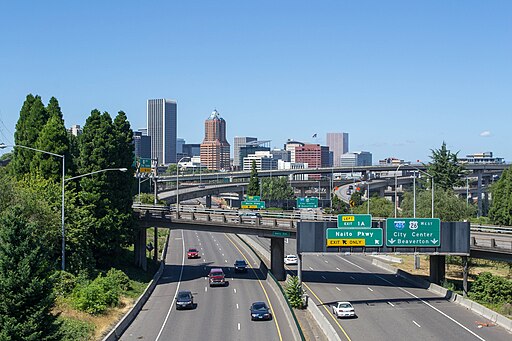Public officials at the local government level are initiating large, innovative, and forward-thinking projects aimed at enhancing economic prosperity in various regions of the country over the next few decades. Many of the projects are funded by federal programs, with billions yet to be allocated before the end of 2026 unless the programs are reauthorized—which may or may not happen.
Illinois is set to embark on a groundbreaking and historic initiative with the establishment of a new quantum computing facility on the former U.S. Steel South Works site. This unique project, which includes the construction of a cryogenic facility that will house the world’s first industrial-use quantum computer, is estimated to cost $9 billion and is backed by a diverse group of supporters, including the state of Illinois, the U.S. Defense Advanced Research Projects Agency and Chicago’s housing, Cook County and economic development organization.
It will deliver a newly created carbon-neutral campus, which will be managed by a public organization under the direction of the University of Illinois. The board will comprise representatives from Illinois’ major universities, state officials, local nonprofits and private companies.
The project is anticipated to attract $20 billion in private investments over the next decade. Supporters will work together to find initiatives to attract private sector firms, and the ongoing effort will offer significant contracting opportunities, especially in infrastructure, research development and environmental sustainability. Construction is currently expected to begin in 2025.

Photo courtesy of Visitor7.
A $1.45 billion initiative in Portland, Oregon, is a transformative public infrastructure effort to improve safety, reduce congestion, reconnect the historic Albina neighborhood to other community spaces and restore neighborhoods that were divided by the original I-5 construction. The roadway project will improve accessibility and house new development, upgraded interchanges and enhanced multimodal connections. The roadway cover will be engineered to support structures up to three stories high, offering potential for future community development and revitalization. The project received federal environmental clearance this year, and the Oregon Department of Transportation is now free to move forward with construction. Contracting opportunities remain plentiful, particularly for construction, environmental consulting, engineering and community engagement services. The project will be delivered by a Construction Manager/General Contractor (CM/GC) model and work is slated to begin in 2025.
A phase 2 effort related to the ongoing development of Hudson Yards is designed to be a transformative project that will significantly alter the landscape of Manhattan’s West Side. Estimated at $12 billion, this ambitious development will include a mixed-use complex featuring three new supertall skyscrapers. The development will also include a 2.5 million square foot casino and hotel, 2 million square feet of office space, 1,500 residential units and essential public amenities, such as a public school and a 5.6-acre park. As the development moves forward, there will be substantial contracting opportunities in infrastructure engineering, professional services, construction, technology and equipment. Construction is slated for 2025.
City leaders in Albuquerque, New Mexico are planning a complete revitalization of the downtown area. A redevelopment planning team has been formed to advance initiatives that will attract new residents, businesses, and visitors. The cumulative effort is estimated to cost $400 million.
Goals for the new urban core include creating new parks and plazas, increasing commercial retailers, and establishing the area as a 24-hour destination for entertainment, culture and arts. This team is charged with the task of promoting programs and incentives to stimulate private investment, grants, and low-interest loans. Through public meetings and community input, planners noted that one of the primary concerns of citizens is safety so that lighting will be enhanced, and there will be marked routes for pedestrians, bikers, and commuters along with safe access to multi-generational activities and a variety of businesses. A detailed plan will be released this fall, and it will then be sent to the city council for final approval.
Another project to reconnect communities with a cost projection of $47 million is being planned by city leaders in Huntsville, Alabama. Planning is underway to connect Huntsville with a sky bridge traversing Pinhook Creek. Project components will include creek channel excavation, three pedestrian bridges, and one new concrete railroad bridge, replacing the existing wooden bridge. When completed, the project will bring greater access to the downtown area, create a new parking area and develop green spaces that will become new parks. The work will also be designed to help with flood mitigation efforts. The project is currently in the design phase and bidding is slated for late 2024 or early 2025.
City leaders in West Bloomfield Township of Michigan are planning a new multigenerational community center. The current community facility and senior center are both too small to meet the current demand for community activities, so the centers will be combined in a new, larger $25 million facility, which will be called the Connect Community Center. The 33,000-square-foot building will include a dedicated lounge area for seniors, indoor pickleball courts, table tennis, a walking track and rooms for fitness classes. When completed, the facility will provide educational courses and an expanded outdoor play area for young citizens. Additionally, there will be a large, interactive nature exhibit featuring live animals for educational purposes. Meeting spaces and a gymnasium will generate income for the township and support programming for the citizens. The project is currently in the design phase and construction is planned for 2025.
Visionary leaders are moving quickly to take advantage of funding for projects such as these. Interested parties can request planning documents as soon as they are completed. The next two years may be two of the best years ever for contractors to partner with government!







